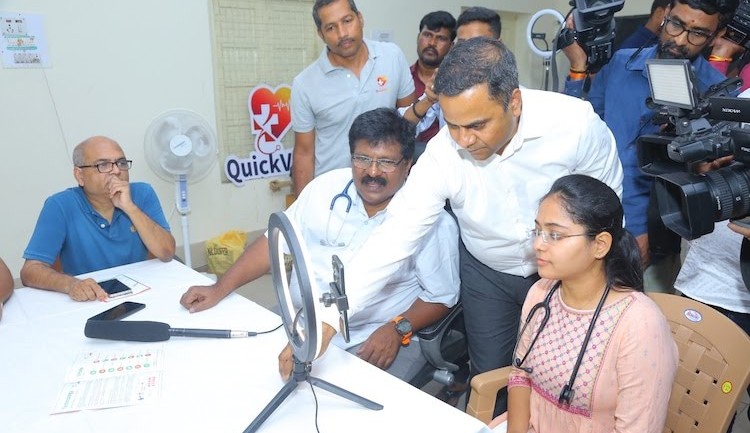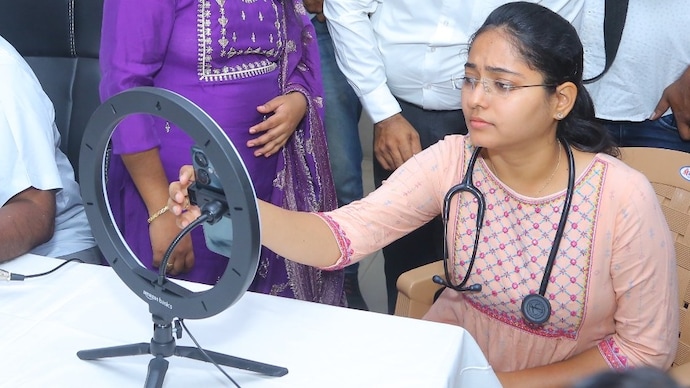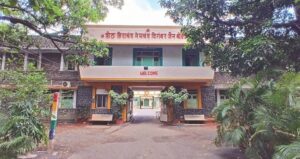India’s First AI-Driven Needle-Free Blood Test Debuts at Niloufer Hospital

India’s First AI-Driven Needle-Free Blood Test Debuts at Niloufer Hospital
In a landmark moment for Indian healthcare, Niloufer Hospital in Hyderabad has become the first medical institution in the country to implement a revolutionary artificial intelligence-powered diagnostic solution that eliminates the need for needles, blood draws, or laboratory delays. The tool, created by health-tech startup Quick Vitals, is poised to transform how routine health screenings are conducted across the nation.
The innovation — an app named Amruth Swasth Bharath — was officially launched at Niloufer Hospital’s Red Hills campus in Lakdikapul. What sets it apart? It can deliver vital blood health readings within 20 to 60 seconds by simply scanning a person’s face using a smartphone or tablet camera.
Unlike traditional diagnostic procedures that rely on drawing blood and waiting hours or even days for lab reports, this new AI-based system leverages a technology known as Photoplethysmography (PPG). PPG detects subtle changes in light reflection through the skin to assess a variety of critical health metrics in real time.
Using this cutting-edge method, Amruth Swasth Bharath can monitor:
- Blood Pressure
- Oxygen Saturation (SpO2)
- Heart Rate
- Respiratory Rate
- Heart Rate Variability (HRV)
- Hemoglobin A1c (HbA1c)
- Stress Levels
- Pulse Respiratory Quotient (PRQ)
- Sympathetic and Parasympathetic Nervous System Activity
Moreover, the system also supports continuous patient monitoring through compatible wearable devices with PPG sensors.

As Easy As Taking a Selfie
Harish Bisam, the founder of Quick Vitals, emphasized the simplicity and accessibility of the tool, stating, “With just a face scan, anyone can gain insight into their health in less than a minute. It’s as simple as taking a selfie.” He added that the technology could prove especially valuable in bridging the healthcare gap in rural and underserved regions.
“Our goal is to make regular health checks quick, easy, and accessible for everyone, especially those who face difficulties accessing diagnostic facilities,” Bisam explained.
Prioritizing Women and Children’s Health
This AI-powered tool is also being hailed as a major leap forward in maternal and child healthcare. According to Dr. Ravi Kumar, superintendent of Niloufer Hospital, the introduction of this technology will significantly improve early diagnosis for the most at-risk groups.
“It’s a safe, fast, and reliable tool that’s especially useful for monitoring the health of pregnant women and young children,” said Dr. Kumar.
Dr. Santhosh Kralet, a member of the National Medical Commission, echoed similar sentiments. He noted that silent yet prevalent health conditions like anemia can now be detected early and more widely screened thanks to this breakthrough.
“This technology ensures faster detection of hidden diseases, helping us reach more people and leaving no one out of our health programs,” Dr. Kralet said.
Quick Vitals has underscored its commitment to data protection, stating that patient data is stored securely and only accessible by authorized medical professionals. The platform is fully compliant with India’s health data privacy regulations.
The rollout at Niloufer Hospital is just the beginning. Harish Bisam confirmed that Maharashtra is next in line to integrate the tool into its healthcare ecosystem, potentially paving the way for national adoption.












